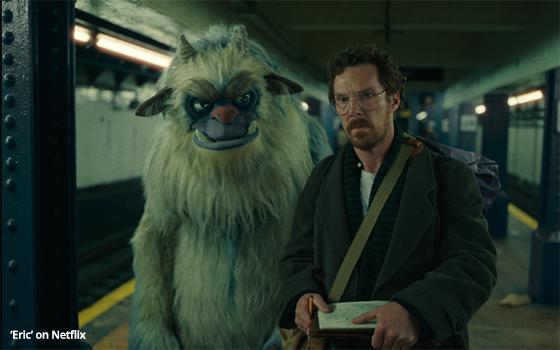
TV shows come and go today at a rate that was once
unthinkable.
You might think that this never-ending supply of new shows -- dramas, comedies, reality shows, docuseries, documentaries, made-for-TV movies, stand-up comedy
performances and much more -- would represent an embarrassment of riches for a TV Blog published five days a week.
But think again. Just because a TV show is on TV or coming
to TV, that doesn’t necessarily mean it needs to get a day’s worth of attention from the TV Blog.
More often than ever before, shows come up here for reviews or
commentary based on the way their subject matter reflects current trends in TV content, and also social issues in the outer world beyond just television.
An example of the latter
over the last few years is the frequency of drama series based in a future world in which current events that are in play today lead to dire, often apocalyptic, end-of-the-world consequences.
advertisement
advertisement
The causes include unchecked climate change that wreaks havoc on weather patterns to create superstorms that kill and displace millions, and tensions between great powers that literally
explode.
The quantity of apocalypse dramas, from zombies conquering the earth to communities of catastrophe survivors scratching out an existence in a savage world, reflects very
real fears people have today around climate change and global tensions.
Some of these shows have technology components. Even before AI became the hottest topic on the planet, its
uses and abuses have been a part of TV’s negative and disastrous future-thinking shows for years. Look for more dramas on the evils of AI coming soon.
Clearly, there is a trend here -- and one that the TV Blog returns to again and again.
The TV Blog
clings to other content trends that reside on a much less serious plane than the prospect of the world ending.
These include the state of situation comedy on TV -- often on network
television, but also in the streaming universe.
The contents of TV shows in the areas of violence, sex and language are also something the TV Blog has followed and chronicled
for so long that I see no reason to stop now, even if the whole thing is a lost cause.
Another trend springs from today’s fast and furious, 24/7 development and production of
content for the great TV leviathan.
Sometimes, the scenarios they come up with are head-scratchers. A case in point is a new Netflix drama called “Eric” that premieres
this Thursday, May 30.
It’s a drama series about the disappearance of a small boy in New York City in the 1980s, and what his dad then does to find the boy when he feels the
police are dragging their feet.
The show stars Benedict Cumberbatch as the dad. The story of the missing boy is a serious one.
New Yorkers will note its
similarities to the most famous such disappearance in the city’s modern history -- the 1979 disappearance of 9-year-old Etan Patz who went missing while walking to school in Soho. Neither he nor
his body has ever been found.
In “Eric,” the dad understandably grows more emotionally distraught with each day that the boy remains missing.
His
emotional state leads him to adopt an imaginary friend -- a furry creature named Eric. Like a latter-day Harvey, Eric can be seen only by Dad.
In this way, Eric (seen with Dad in the above photo), brings the dad closer to his son because Eric originated in the boy’s imagination. Dad conjures the character based on drawings
the child made of his imaginary friend.
I realize that the father’s delusional adoption of this furry friend relates both to
his son and his profession as a puppeteer.
But at the same time, the storyline of this show seems to be: A man goes looking for his
missing son with the help of an invisible Wookie.
The TV Blog’s skepticism should in no way deter anybody from sampling and enjoying this show called Eric. These
remarks are solely the opinion of yours truly.